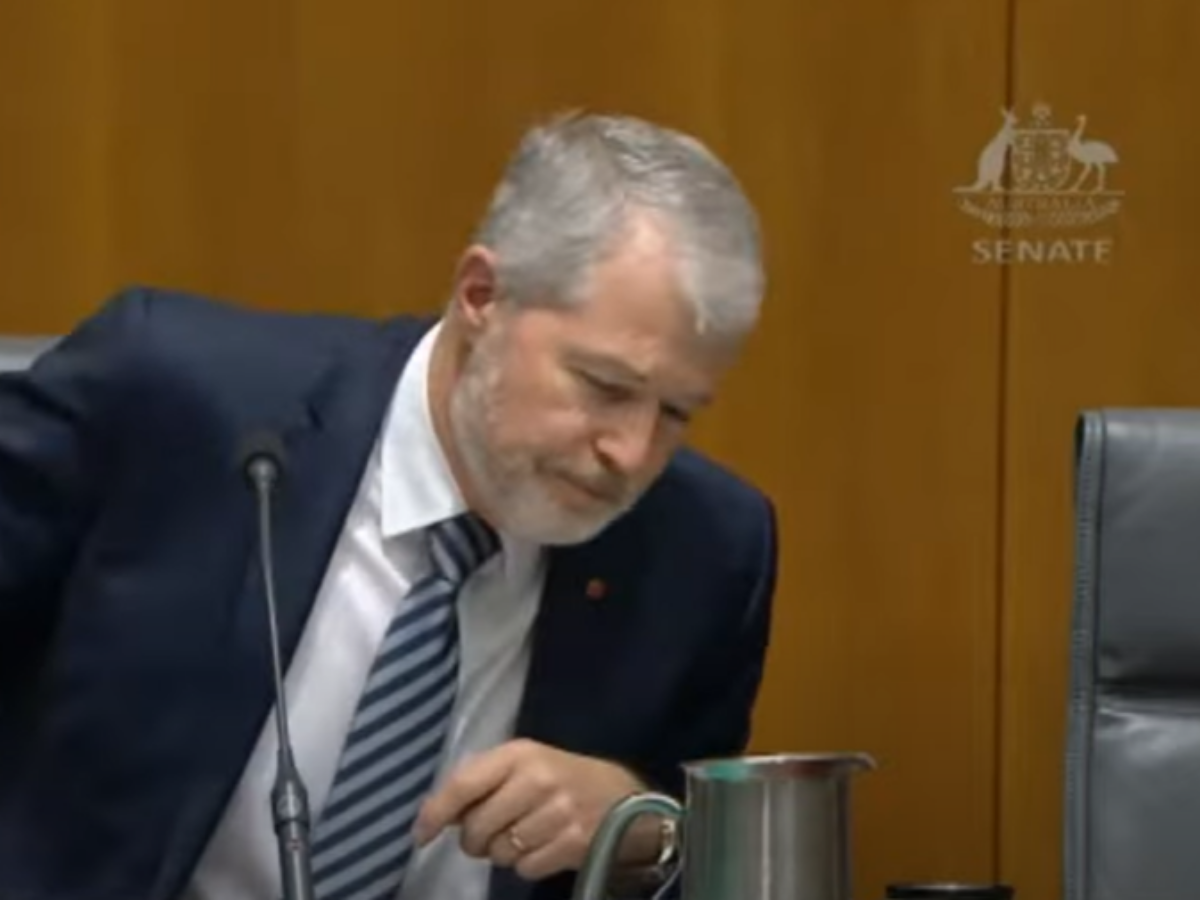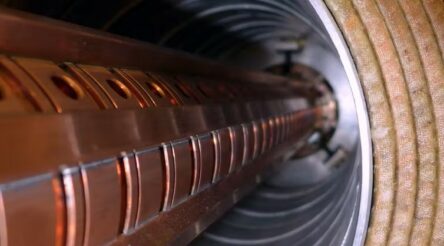Senator Fawcett grills bureaucrats and governments on defence procurement

By Peter Roberts
Occasionally a Senator provides a powerful demonstration of the value of Senate Estimates hearings to lay bare the inconsistencies and contradictions that prevent governments from achieving their aims.
Last week we witnessed just such a seminal performance by South Australian Liberal Senator David Fawcett who calmly and methodically uncovered the gulf between government intentions to build Australian defence industry and the reality of procurement policy which acts against just that.
It is difficult to distill 25 minutes of meticulous argument in a short article. So I would recommend that those interested watch Fawcett's questioning of Stephen Moore, First Assistant Secretary Defence Industry Policy, Chris Deeble, Deputy Secretary Capability Acquisition and Sustainment Group (CASG) and Secretary of the Department of Finance, Greg Moriarty here.
Fawcett first questioned the difference between the current review underway into defence industry policy and that of 2016 – that review was the first to establish the idea that defence industry capability should be developed as a plank of national defence and security.
He pointed out that despite the good intentions of defence strategic policy – in 2016 as now – to encourage the development of capabilities, this did not translate to any change in procurement practices.
Senator Fawcett said: “There have been numerous inquiries into the relationship between government writ large, defence and industry and procurement.
“One of the recurring themes…(was) that the procurement rules are the root cause of failure to identify and sustain sovereign Australian capabilities.
“In fact, defence walked back its industry policy from the 2016 industry policy review…and increasingly distanced itself from the concept of actually identifying and investing in particular capabilities.
“(This was) to the point where they were briefing Australian companies that ‘we are not going to choose you, we are not going to preference even if you represent a high priority…because of the procurement rules'.
“…(This happens) even where the Commonwealth has spent taxpayers money helping a small company to innovate and generate a capability in line with the government's policy intent, the procurement rules have been used to disqualify them from being contracted by the Commonwealth.”
Senator Fawcett posed his challenge to procurement policy during Budget Estimates as a part of the Senate Foreign Affairs Defence and Trade Legislation committee proceedings.
The response he got to repeated questioning as to how this review was different, and would have a chance of having a different outcome to that of 2016, was basically that ‘we are still working through that'.
Senator Fawcett asked: “So what are you doing specifically to look at what I would call the failure modes in our industry policy if we are serious about having not just identified sovereign capabilities, but then sustaining them with contracts as opposed to grants?”
Defence Industry Policy's Stephen Moore: “Certainly the government has been quite clear to me and my colleagues that reform to procurement needs to be part of our considerations.”
Then Capability Acquisition and Sustainment Group's Chris Deeble chipped in the review was looking at a continuum of policy that would pull capability through from innovation and into acquisition and sustainment, ultimately leading to export opportunity for Australian companies.
Deeble said: “So that full continuum is now part of our consideration.
“…And that means we will have a different consideration of things like the Australian industry capability policy and the procurement policy, and how that gets enacted. And we will be looking at the global supply chain context so that we can create a continuum.
“So…what we are trying to do now is stitch that together, and where there is the strategy and the industry strategy…that we are going to align our procurement strategy to enable that.”
Deeble foreshadowed ‘more timely, more flexible arrangements' for industry to be able to pull capability through, ‘which I think will address some of the issues that you noted Senator'.
Senator Fawcett said the issue he was raising, of intentions verus outcomes, was how government on both sides of politics has run defence procurement for several decades.
He gave the example of an Australian National Audit Office report which was critical of the procurement of Hunter class frigates.
Fawcett said: “Shipbuilding was identified as one of the sovereign capabilities that defence procurement was required to support.
“And yet because the concept of capability is not reflected anywhere in the Commonwealth procurement rules, there was no ability to attribute the establishment of a sovereign capability as being value for money as opposed to the individual project.
“…This highlights the disconnect between audit agencies like ANAO, the procurement rules which are run by the Department of Finance, and the Department of Defence and government of whichever persuasion which outlines a strategic priority, but all the enabling regulations have not been lined up to make those work. And so you have a failure mode.”
Senator Fawcett asked for an assurance that the current review will specifically be bringing together the secretaries from the relevant departments to work out how reform can occur in this area.
“Because if not, then this review will be doomed for failure like all the other reviews that we have had in the past.”
Defence Industry Policy's Stephen Moore said. “Senator I can assure you that certainly we are talking to our colleagues across government as I am sure Mr Deeble is as well to get at the sort of things you are talking about.”
The Department of Finance's Greg Moriarty said Defence Industry Minister Pat Conroy and Defence Minister Richard Marles had been very clear that they want the review into defence industry policy to look at a whole range of issues.
Moriarty said: “While we are in the process of developing ideas and options for government I just want to assure you that we are taking the work seriously, we are doing a lot of industry outreach we are engaging with the other relevant departments.”
Senator Fawcett concluded: “I wish you luck Mr Moriarty, because Finance has been engaged under multiple ministers and secretaries over the years with very little change in the procurement rules.
“But given the strategic requirements…to have elements of our industry that are fundamental inputs to our defence capability, this is something we need to get right and get right quickly.”
Further reading:
Defence innovation to be linked to purchasing – Conroy
Land Forces 2022 – defence industry policy under Pat Conroy, interview
Audit office critical of Defence Department over frigate contract
Picture: Senator David Fawcett
@aumanufacturing Sections
Analysis and Commentary Awards casino reviews Defence Gambling Manufacturing News Online Casino Podcast Technology Videos





